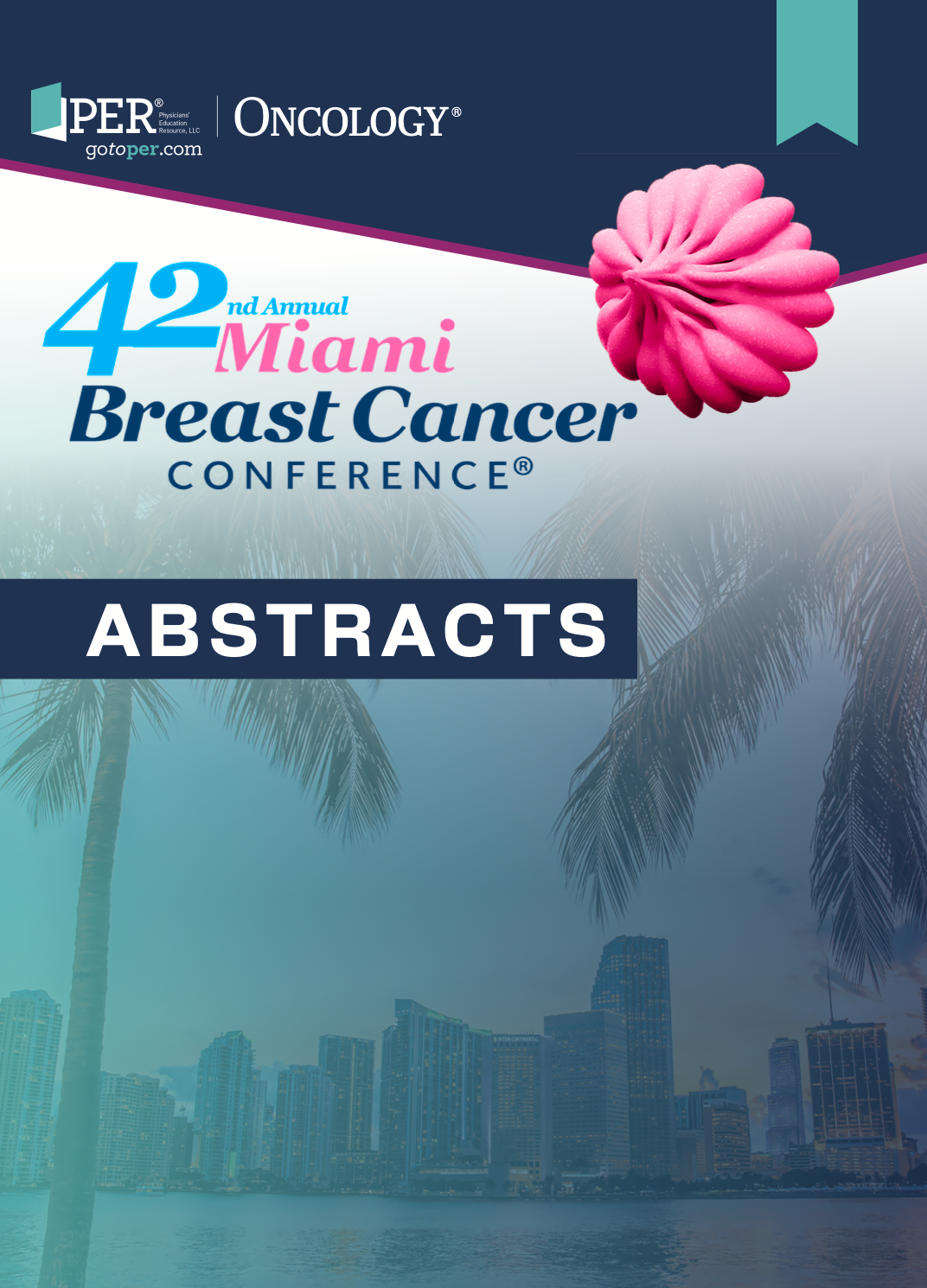86 Elacestrant Combinations in Patients With Estrogen Receptor-Positive, HER2-Negative Locally Advanced or Metastatic Breast Cancer: Update From ELEVATE, a Phase 1b/2, Open-Label, Umbrella Study
86 Elacestrant Combinations in Patients With Estrogen Receptor-Positive, HER2-Negative Locally Advanced or Metastatic Breast Cancer: Update From ELEVATE, a Phase 1b/2, Open-Label, Umbrella Study

Background
After first-line endocrine therapy (ET) plus CDK4/6 inhibitor (CDK4/6i) in estrogen receptor–positive/HER2-negative (ER+/HER2–) metastatic breast cancer, tumors eventually develop resistance. In the phase 3 EMERALD trial (NCT03778931), elacestrant significantly improved progression-free survival (PFS) vs standard-of-care (SOC) ET (ESR1-mutated tumors HR, 0.55; 95% CI, 0.39-0.77; P= .0005; all patients HR, 0.70; 95% CI, 0.55-0.88; P = .0018) with a manageable safety profile in patients with ER+/HER2– metastatic breast cancer previously treated with ET plus CDK4/6i. To address various resistance mechanisms, the phase 1/2 ELEVATE trial (NCT05563220) evaluates elacestrant with everolimus, alpelisib, capivasertib, ribociclib, palbociclib, or abemaciclib.
Materials and Methods
Eligible patients have ER+/HER2– metastatic breast cancer, 1 to 2 lines of prior ET. The phase 1b objective is to identify the recommended phase 2 dose (RP2D) of each combination. The phase 1/2 ELECTRA (NCT05386108) evaluated the RP2D of elacestrant plus abemaciclib. The phase 2 objective is to evaluate PFS with each combination at the RP2D. This analysis reports updated RP2D safety for abemaciclib, everolimus, and palbociclib combinations and phase 1b safety for the other combinations.
Results
As of October 15, 2024, most common treatment-emergent adverse events (TEAEs) 15% or more for the following RP2D combinations are reported: elacestrant at 345 mg plus abemaciclib at 150 mg twice daily (n = 30): diarrhea (80%; 7% grade 3/4), nausea (63%; 7% grade 3/4), fatigue (43%, 7% grade 3/4), vomiting (43%; 0 grade 3/4), constipation (30%; 0 grade 3/4), median PFS was not reached, median observation time was 4.6 months at data cut-off; elacestrant at 345 mg plus everolimus at 7.5 mg (n = 57): nausea (51%; 2% grade 3/4), diarrhea (40%; 5% grade 3/4), stomatitis (33%; 4% grade 3/4), median PFS was not reached, median observation time was 2.8 months at data cut-off; elacestrant at 345 mg plus palbociclib plus 125 mg (n = 7): neutropenia (57%; 43% grade 3/4, mostly related to palbociclib). Most common TEAEs (≥35%) in the ongoing phase 1b combinations at the current test doses are reported:elacestrant at 172 mg plus ribociclib at 600 mg (n = 6): neutropenia (50%; 33% grade 3/4, mostly related to ribociclib), nausea, vomiting, fatigue (each 50%, 0 grade 3/4); elacestrant at 258 mg plus capivasertib at 320 mg (n = 7): fatigue, nausea (57% each, 0 grade 3/4), vomiting, diarrhea (43% each, 0 grade 3/4); elacestrant at 258 mg plus alpelisib at 200 mg (n = 6): nausea (83%; 0 grade 3/4), rash, hyperglycemia (50% each; 17% grade 3/4), stomatitis, blurred vision, dizziness (each 50%; 0 grade 3/4).
Conclusion
The evaluated combinations continue to demonstrate a known safety profile consistent with each drug plus SOC ET and no increased risk of associated AEs. Elacestrant has the potential to become the ET partner for multiple targeted agents, providing an all-oral treatment option in patients with ER+/HER2– metastatic breast cancer, delaying chemotherapy or antibody-drug conjugate–based regimens.

Newsletter
Stay up to date on recent advances in the multidisciplinary approach to cancer.